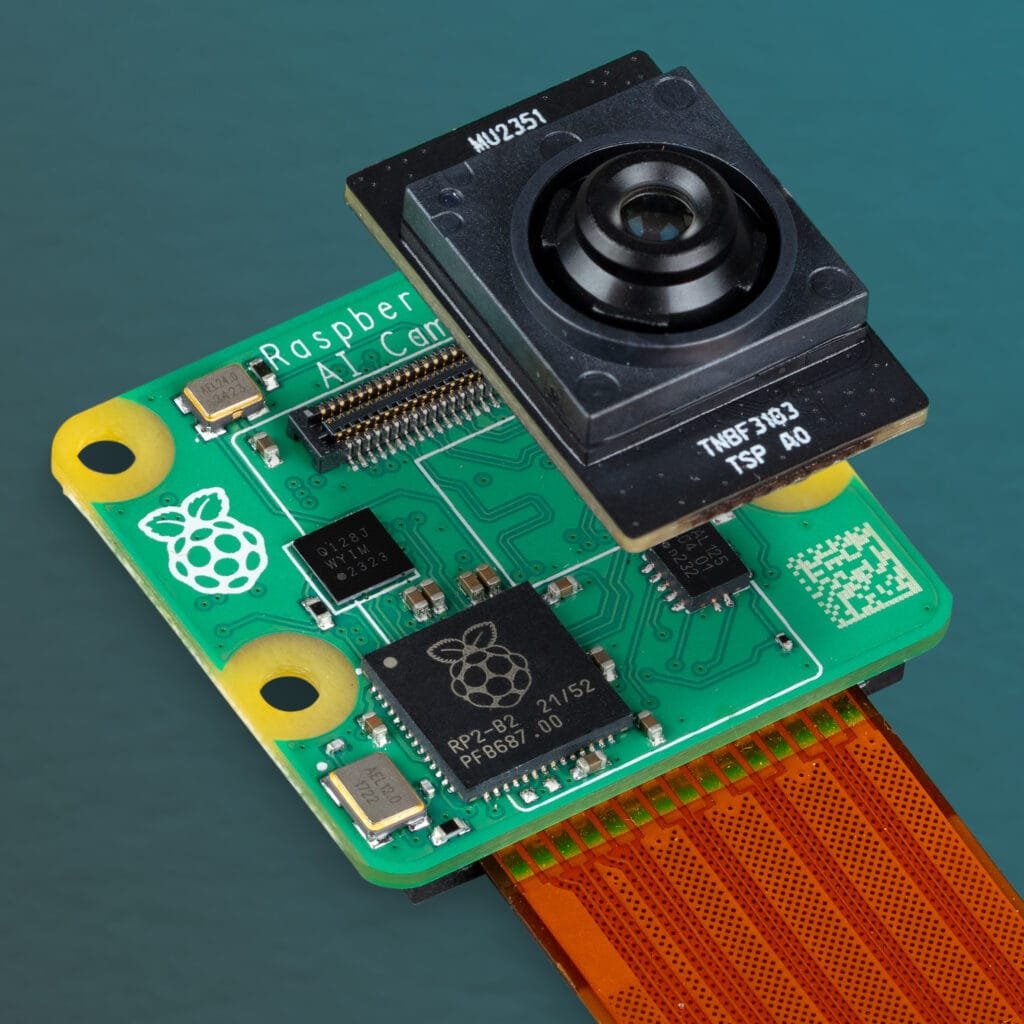Affordable AI Camera with onboard processing brings new possibilities for smart city sensors, industrial automation, and more.
Meta Description: Raspberry Pi introduces a new AI Camera module for vision-based AI applications, offering onboard AI processing at an affordable price point.
Raspberry Pi has launched its latest innovation: the Raspberry Pi AI Camera. Designed to enable vision-based AI applications, this camera module is a game-changer for those seeking affordable, compact solutions for AI processing. At $70, this add-on offers exciting new possibilities, especially in fields like industrial automation and smart city development.
What’s New with the Raspberry Pi AI Camera?
The new Raspberry Pi AI Camera features a Sony IMX500 image sensor paired with Raspberry Pi’s RP2040 microcontroller chip, offering onboard AI processing. This means the camera itself can handle image recognition and object detection without putting any strain on the host Raspberry Pi. The result? The main Raspberry Pi board stays free to perform other tasks.
This capability is made possible by the integration of MobileNet-SSD, a pre-loaded, real-time object detection model. The AI Camera processes data directly on the module, which eliminates the need for an external AI accelerator.

Performance and Use Cases
While the RP2040 microcontroller is not going to replace high-performance GPUs like Nvidia’s for deep learning tasks, it is more than capable for many vision-based AI applications. This makes the AI Camera a perfect fit for startups or companies needing a cost-effective solution for AI tasks like basic quality control, traffic flow monitoring, or smart city sensors.
For example, businesses could use the AI Camera for industrial automation. Imagine an assembly line where products pass under the camera for real-time quality checks. In urban areas, smart city projects could use the camera to track empty parking spots or monitor traffic patterns.
Designed for Industrial Use
Raspberry Pi’s journey started with hobbyists, but now most of its sales come from industrial and embedded applications. In fact, the company reports that 72% of its sales are to companies using Raspberry Pi devices in commercial products or internal systems. This ratio is expected to rise with the release of the AI Camera, especially given its compatibility with all existing Raspberry Pi boards.
The AI Camera module itself shares the same size as Raspberry Pi’s popular Camera Module 3 at 25mm x 24mm, though it is slightly thicker due to the optical sensor. While the Camera Module 3, priced at $25, will remain in production for years to come, the AI Camera offers much more advanced capabilities for companies looking to add AI-powered vision to their systems.
Reliable Supply and Long-Term Availability
One reason Raspberry Pi continues to gain popularity in the industrial sector is its ability to deliver products at scale. Even after facing post-COVID supply chain challenges, the company has resolved most of these issues, ensuring that companies can reliably source Raspberry Pi products without delays.
To further cement its reputation, Raspberry Pi promises that the AI Camera module will remain in production until at least January 2028. This long-term availability provides companies with the confidence to integrate the camera into their products without worrying about future shortages or sudden discontinuation.
A Smart Step Forward
The Raspberry Pi AI Camera is a significant addition to the company’s ecosystem, opening doors for vision-based AI applications at an affordable price. From smart cities to automated assembly lines, this new AI Camera has the potential to revolutionize how industries use AI for image processing.
With onboard AI processing, broad compatibility, and long-term availability, it’s no surprise that companies will increasingly rely on Raspberry Pi for their AI camera needs. For hobbyists and businesses alike, the Raspberry Pi AI Camera promises to be a valuable tool for years to come.